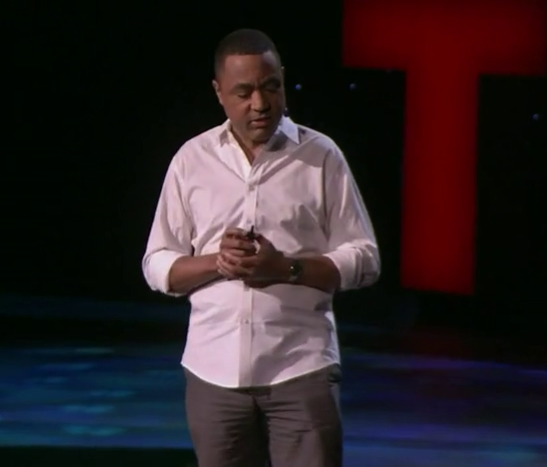Once you have things in your pocket that can receive that message,
一旦你在口袋里有了能接受这个信息的装置,
then you have the conditions that allow that we can write like we speak.
你就有条件来像说话一样打字了。
And that's where texting comes in. And so, texting is very loose in its structure.
这时短信就出现了。所以,短信在结构上非常松散。
No one thinks about capital letters or punctuation when one texts,
没有人在写短信的时候在乎大写字母或者标点,
but then again, do you think about those things when you talk?
话说回来,你在说话的时候也会想到这些东西吗?
No, and so therefore why would you when you were texting?
不,那么为什么要在写短信的时候这样做呢?
What texting is, despite the fact that it involves
除了与用手操作的书面文字表达有关外,
the brute mechanics of something that we call writing, is fingered speech. That's what texting is.
短信其实就是一种“指语”,这就是短信。
Now we can write the way we talk.
现在我们可以像说话一样打字。

And it's a very interesting thing, but nevertheless easy to think that still it represents some sort of decline.
这是非常有趣的事情,尽管人们很容易认为短信的出现象征着一种倒退。
We see this general bagginess of the structure,
我们看到短信在结构上的松散,
the lack of concern with rules and the way that we're used to
缺乏一定的规则,
learning on the blackboard, and so we think that something has gone wrong.
和我们习惯在黑板上学习的方式不同,我们就想当然的认为出问题了。
It's a very natural sense.
这么想也很自然。
But the fact of the matter is that what is going on is a kind of emergent complexity.
但事实上,它其实是自然而然产生的,并具有一定的复杂性。
That's what we're seeing in this fingered speech.
这就是我们在这种“指语”上看到的。
And in order to understand it, what we want to see is the way, in this new kind of language, there is new structure coming up.
为了更好的理解它,我们想要看到的是,在这种新的“语言”中,它其实是具有一种新的结构。












